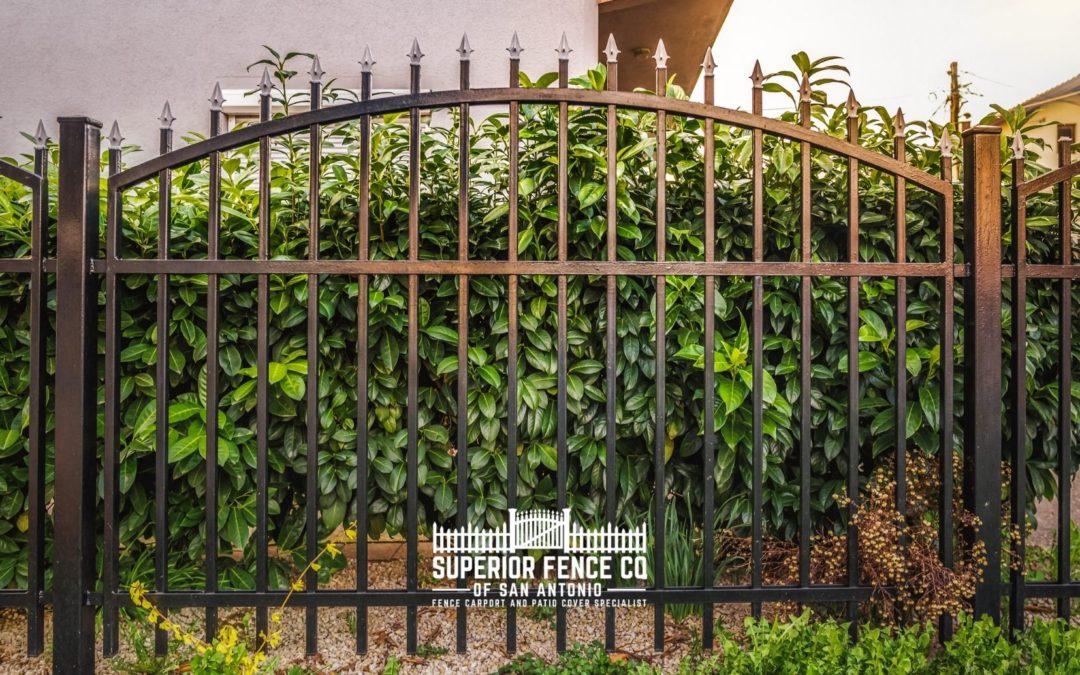All Categories
Featured

When it concerns picking the finest fence product for toughness, wrought iron stands out as one of one of the most long-lasting and reliable choices offered. Understood for its toughness, visual allure, and capability to withstand different weather, wrought iron is a preferred selection for both business and residential properties. Just how does it contrast to various other fencing products in terms of long life and performance? Allow's take a better look at wrought iron secure fencing and just how it piles up versus alternatives like plastic, wood, and aluminum.
Strength and Durability of Wrought Iron Secure Fencing. Wrought iron is a solid, sturdy material that's made to last for years, if not longer. Unlike numerous other fence choices, functioned iron can endure harsh environmental problems, including severe heat, heavy rain, and even strong winds. This makes it a superb option for properties found in locations with unforeseeable climate. Since it is a metal, functioned iron is not prone to the deterioration that wood fences often experience, such as rotting, warping, or insect problems.
Sturdiness: Wrought iron fences are incredibly tough and can withstand influences and other kinds of physical stress and anxiety that may damage various other materials. When properly maintained, they can last for half a century or even more, making them a financial investment that will supply long-term worth.
Wrought Iron vs. Timber Fencing. Wooden fences, while standard and cosmetically pleasing, commonly require even more upkeep and have a shorter life-span contrasted to functioned iron. Wood is susceptible to rot, termites, and weathering in time, every one of which can jeopardize its structural honesty. Additionally, timber fences might need to be changed or repaired every 10 to twenty years, relying on the climate and the kind of wood utilized.
Upkeep: While wood fences require to be frequently treated with discolorations, sealers, or paints to keep their look and durability, functioned iron fences generally call for a lot less upkeep. They may require occasional cleansing or repainting to avoid corrosion, especially in humid or coastal areas, yet they will not experience from the very same sorts of deterioration as wood.
Durability: While a well-kept wooden fencing could last 20 to three decades, wrought iron can surpass that life-span by a number of years, making it a more durable selection over time.
Wrought Iron vs. Plastic Fencing. Plastic fence has actually become a popular choice to wood as a result of its reduced upkeep and resistance to the aspects. Unlike timber, vinyl doesn't rot or warp, and it does not require to be repainted or treated. However, plastic can end up being weak gradually, particularly in regions with rough winter seasons or severe UV exposure. It might damage or break under pressure, such as from an extreme storm or a hefty effect.
Durability: While vinyl is rather resilient and resistant to rot and fading, it still can't match the long-lasting strength and durability of functioned iron. A plastic fence could last around 20 to 30 years, relying on ecological factors, however it does not have the structural honesty that functioned iron provides.
Upkeep: Plastic needs very little upkeep compared to wood, but it can still discolor in time, specifically in areas with intense sunlight direct exposure. Wrought iron may require occasional corrosion avoidance therapies but usually requires less treatments than vinyl.
Wrought Iron vs. Aluminum Fence. Aluminum is one more metal alternative to functioned iron, and while it shares a few of the durability attributes of wrought iron, it is generally much less solid and sturdy. Light weight aluminum is a lot more resistant and lightweight to rust and rust, making it a popular option for low-maintenance secure fencing. Nonetheless, it's not as strong as functioned iron and may be extra prone to denting or bending under stress.

Longevity: Wrought iron is dramatically stronger and extra durable than light weight aluminum. While light weight aluminum fences can last for several years, they might not hold up as well in high-impact or high-traffic areas. On the other hand, wrought iron is far more immune to physical damages and can much better endure stress and force.
Upkeep: Both wrought iron and aluminum fences need some maintenance, largely to avoid corrosion. However, light weight aluminum is less likely to corrosion than functioned iron, making it an extra low-maintenance choice in areas with high moisture or seaside salt direct exposure.
Last Ideas: Wrought Iron's Toughness Benefit. Wrought iron attracts attention as one of the most sturdy fencing products readily available, outmatching wood, vinyl, and aluminum in regards to toughness, long life, and general performance. While it does need occasional upkeep, specifically to avoid corrosion, its capability to stand up to extreme weather, physical tension, and the test of time makes it an excellent investment for home owners and services trying to find a resilient, safe and secure fencing option.
For those who prioritize toughness and longevity most of all else, functioned iron is an unsurpassable option. Whether you're securing a household home, improving the appearance of your backyard, or providing safety and security for a business site, functioned iron fencing will offer decades of longevity and visual charm that couple of other products can match.
Latest Posts
Discover the Premier Auto Repair Discounts in Montclare, Chicago
Published en
1 min read
Smooth Light Weight Aluminum Rain Gutters: The Smart Selection for Your Home
Published en
1 min read
Identifying When Your Car Needs Skilled Auto Repair at Montclare Auto Repair
Published en
1 min read
More
Latest Posts
Discover the Premier Auto Repair Discounts in Montclare, Chicago
Published May 26, 25
1 min read
Smooth Light Weight Aluminum Rain Gutters: The Smart Selection for Your Home
Published May 23, 25
1 min read
Identifying When Your Car Needs Skilled Auto Repair at Montclare Auto Repair
Published May 23, 25
1 min read